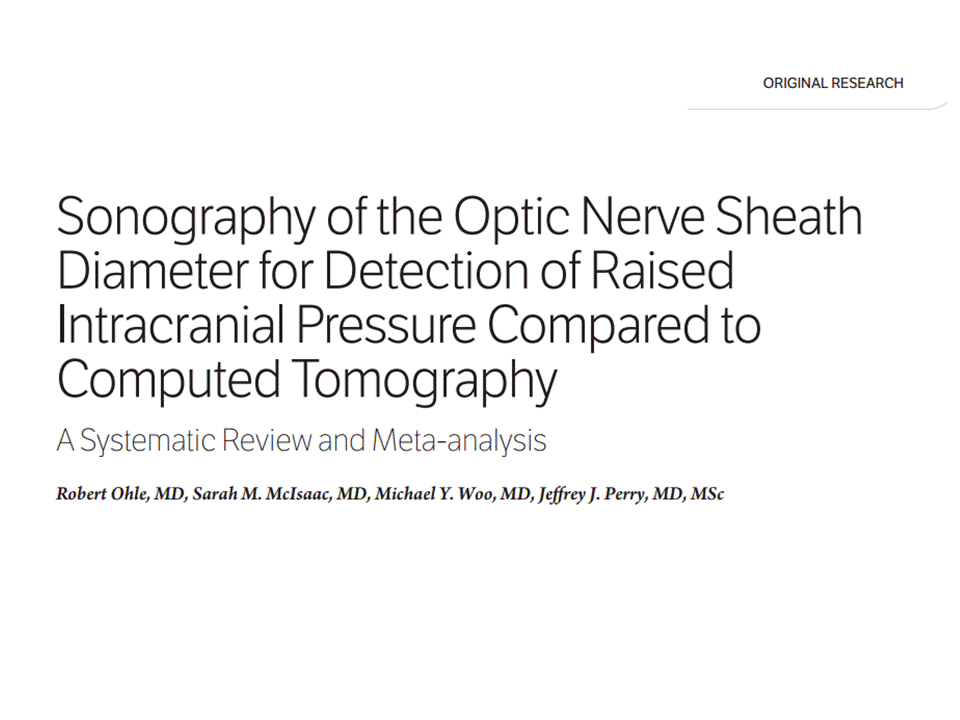Tổng số lượt xem trang
Thứ Sáu, 3 tháng 7, 2015
ONSD and RAISED INTRACRANIAL PRESSURE
Objectives—The diagnosis of raised intracranial pressure (ICP) is important in many critically ill patients. The optic nerve sheath is contiguous with the subarachnoid space; thus, an increase in ICP results in a corresponding increase in the optic nerve sheath diameter. The objective of this study was to assess the diagnostic accuracy of sonography of the optic nerve sheath diameter compared to computed tomography (CT) for predicting raised ICP.
Methods—We searched PubMed, EMBASE, and the Cochrane database from 1986 to August 2013 and performed hand searches. Two independent reviewers extracted data. Study quality was assessed by using the Quality Assessment of Diagnostic Accuracy Studies (QUADAS) tool. We calculated κ agreement for study selection and evaluated clinical and quality homogeneity before the meta-analysis.
Results—From 1214 studies, we selected 45 for full review. Twelve studies with 478 participants were included (κ = 0.89). Ocular sonography yielded sensitivity of 95.6% (95% confidence interval [CI], 87.7%–98.5%), specificity of 92.3% (95% CI, 77.9%–98.4%), a positive likelihood ratio of 12.5 (95% CI, 4.16–37.5), and a negative likelihood ratio of 0.05 (95% CI, 0.02–0.14). Average quality according to the QUADAS tool was 7.4 of 11. There was moderate to high heterogeneity based on the prediction ellipse area and variance logit of sensitivity (2.1754) and specificity (2.6720).
Conclusions—Ocular sonography shows good diagnostic test accuracy for detecting raised ICP compared to CT: specifically, high sensitivity for ruling out raised ICP in a low-risk group and high specificity for ruling in raised ICP in a high-risk group. This noninvasive point-of-care method could lead to rapid interventions for raised ICP, assist centers without CT, and monitor patients during transport or as part of a protocol to reduce CT use.
Đăng ký:
Đăng Nhận xét
(
Atom
)



Không có nhận xét nào :
Đăng nhận xét